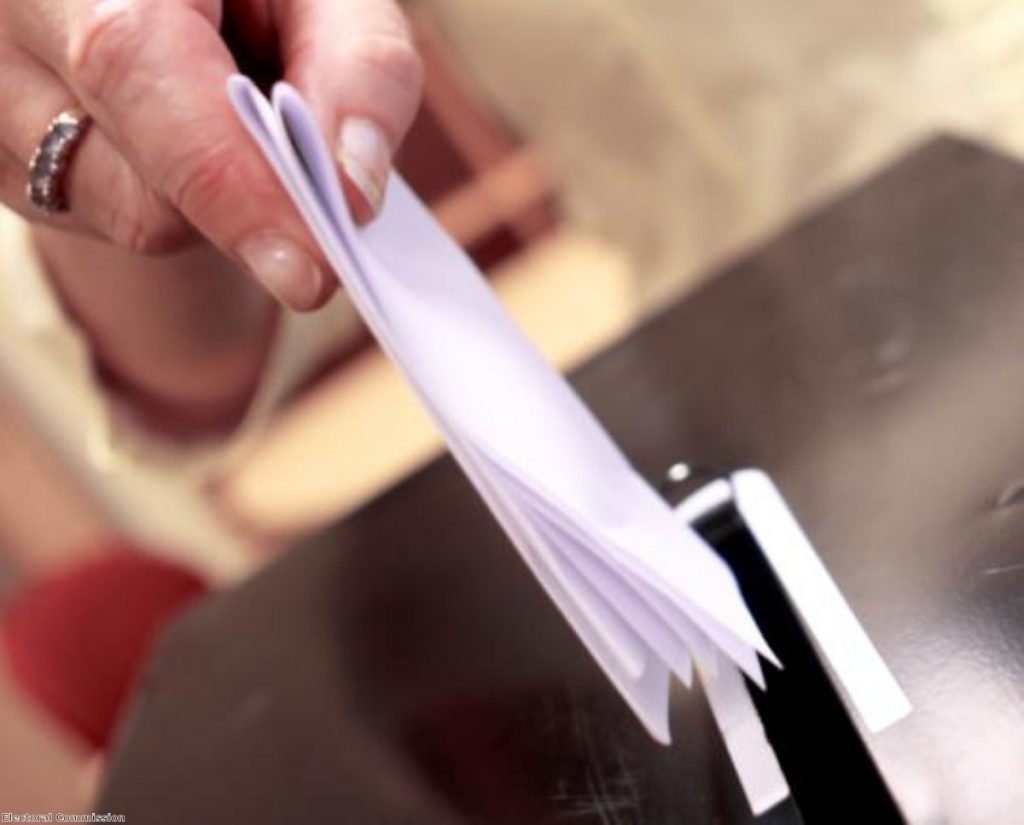Scottish independence referendum: Why aren’t English people allowed to vote?
Something big is happening in Scotland. The future of the United Kingdom is at stake. Many dismayed English, Welsh and Northern Irish people will be wondering: why haven’t I been allowed a say?
It’s an understandable emotion. Your average patriot on the street has grown accustomed to the map of Britain and would be utterly freaked out by the BBC’s weatherman running through the forecast with a bit missing at the top. We need Scotland in order to win Wimbledon, more gold medals at the Olympics and dominate the global whisky market. Scotland’s future affects every one of us – and yet somehow the politicians have failed to give us a vote.
As it happens, there is a reason for this. It’s quite a big one, actually. The United Nations calls it the ‘principle of self-determination’. Normal people call it the ‘principle of not ruthlessly crushing the hopes of a nation’. It’s a relatively new concept for Britain, but these days we’re rather keen on it.
Don’t get me wrong. The old policy worked very well in the past. There was a time when leaders surveying the British Isles from their seat of power in London wouldn’t bat an eyelid before dispatching hordes of armour-clad soldiers to quell the Scottish. More recently, the British Empire found it expedient to co-opt the resources and peoples of lesser states around the world. Nothing brought the Scottish and British together, it turned out, like some mutually-supportive empire-building.


But then things changed. Somewhere in the 20th century, the colonial system fell out of fashion. Having an Empire, as Anthony Eden discovered in 1956 during the Suez Crisis, became very distinctly Not Cool.
Self-determination – the right of a people to do what they like – first emerged not in the UN’s original charter, but in 1960. The wave of African countries seeking independence from their former colonial masters wanted international legal backing for their cause, and got their way – in part thanks to some haranguing from the Soviet Union’s Nikita Khrushchev.
Since then, international circles have tended to adopt the view that the only way is self-determination. When Guatemala insisted Belize ought to be part of it because of their Spanish colonial history, Belize’s people decided otherwise. In 1975, East Timor declared independence but was invaded by Indonesia. The UN refused to recognise their sovereignty. And though it took years and years, a self-determination referendum was eventually held in 1999. East Timor joined the UN three years later.
Now imagine this history lesson continuing in an imaginary textbook from the future:
‘Britain remains an international pariah after denying Scotland self-determination. In 2011 the Scottish parliament voted in favour of an independence referendum following a nationalist victory in local elections. Westminster resisted, arguing that because the outcome would affect English people they should be given a vote. A majority of Scots voted in favour of independence, but were heavily outvoted in the overall result. The UN suspended Britain’s membership and the UK was shamed off the world stage. The British responded by doubling export tariffs on Aberdeen Angus, tartan clothing products and haggis.’
You might not credit it, but maybe we should be thankful to our leaders in Westminster for realising this option wasn’t really much of a goer. Scotland is free to leave the UK if its people – and only its people – want it this way. Ultimately, who would want to live in a country which forced people to belong to it who wanted to leave?
All this explains why, on September 18th, the English will absolutely not be getting a vote.
And that would be the end of this article – if it weren’t for the fact that the above statement is, er, not exactly true.

Port Said under attack from the British-French – the moment which gave birth to self-determination
Despite all of the above, some English people are voting next Thursday. About 360,000, in fact.
And at the same time, around 800,000 people born in Scotland are barred from having their say.
That’s because they made the schoolboy error of not living in Scotland. The problem with the principle of self-determination is that it only applies to anyone living there at the time.
The many English people who’ve moved up north are considered, for the purposes of this vote, Scottish enough to decide whether Scotland should become an independent country.
Instead of quibbling over whether 16- and 17-year-olds should be allowed to have their say, it might have been a fairer contest if all those eligible for citizenship in a potential Scotland had been given a chance to vote.
The problem with even this alternative is it undermines the UN’s rather neat idea that peoples should be able to “freely determine their political status”. While the country we live in would be changed for good if we get a ‘Yes’ vote next week, it will still be the same entity. The same laws will apply. The same government will be in power.
After independence, the world’s newest nation would be able to govern itself as it likes. It could face monumental changes, with all the opportunities and dangers such a transition entails. Everyone living in Scotland would be shaped by this massive adjustment in ways no English person would experience.
That difference trumps everything. It’s what makes this referendum fair. It’s why, whatever the result, the world won’t be writing Britain off as a villain.
We’re just not that kind of country any more.

